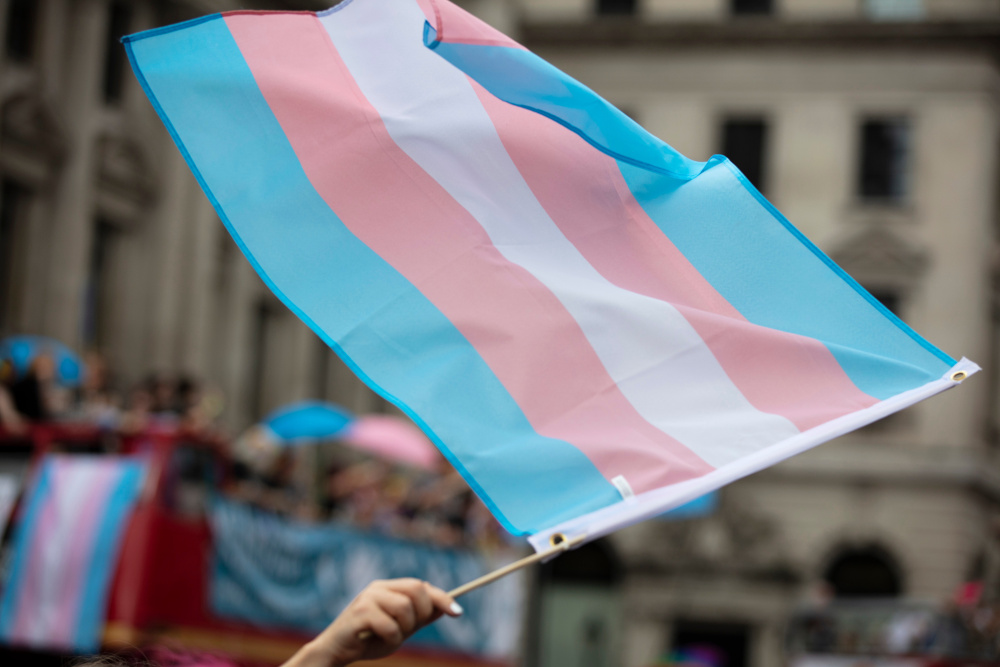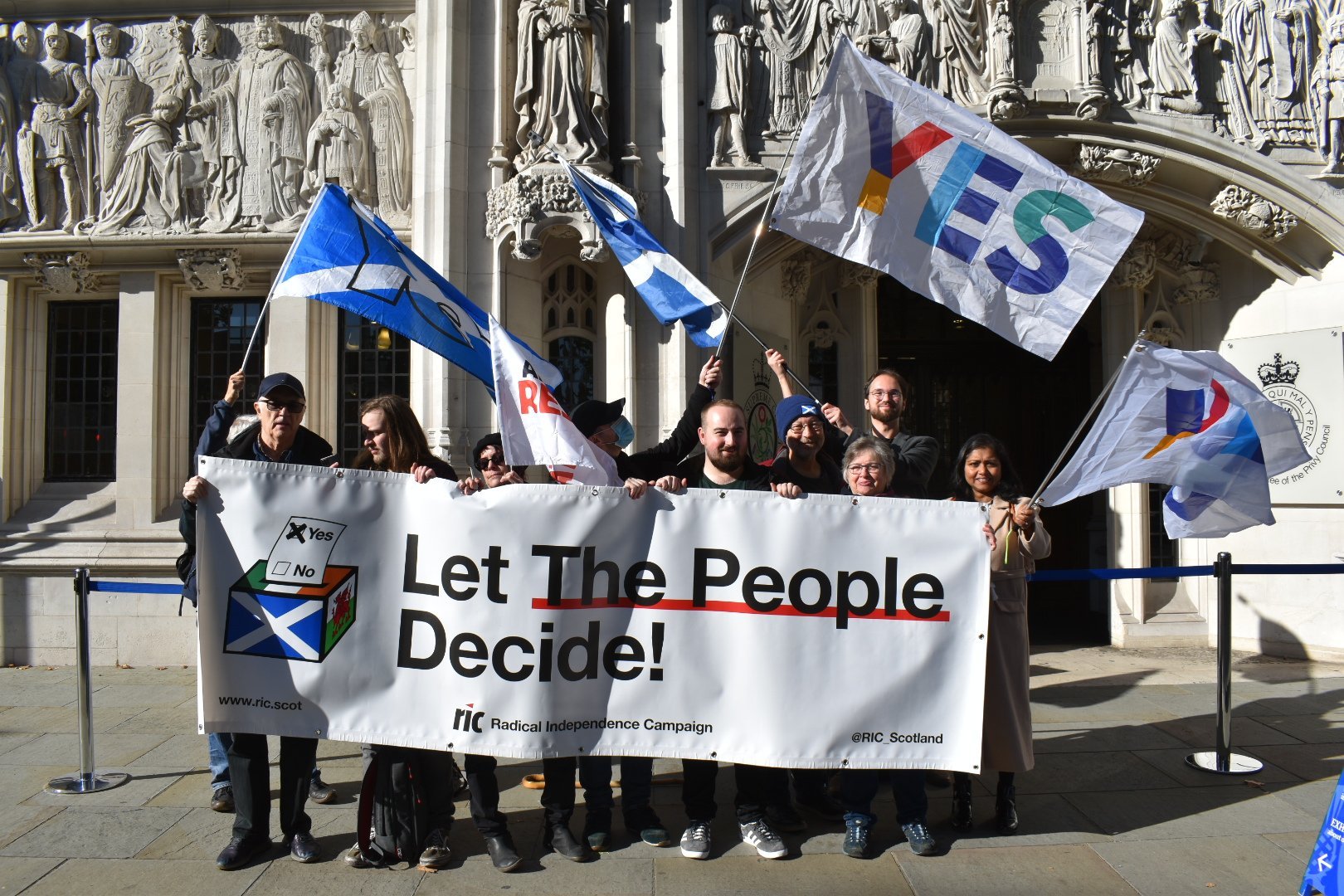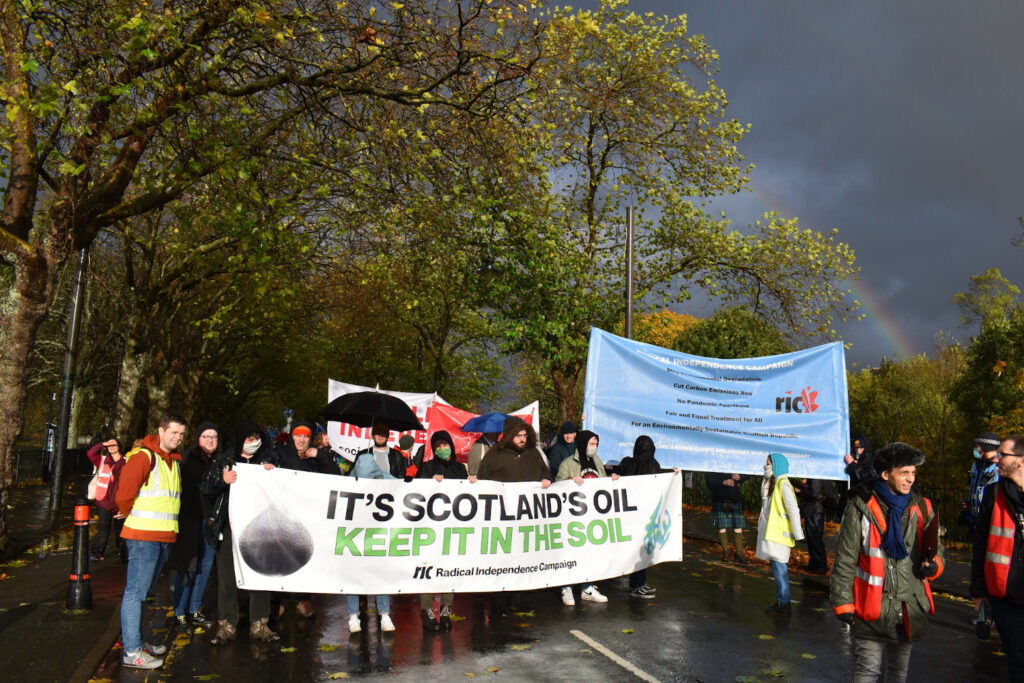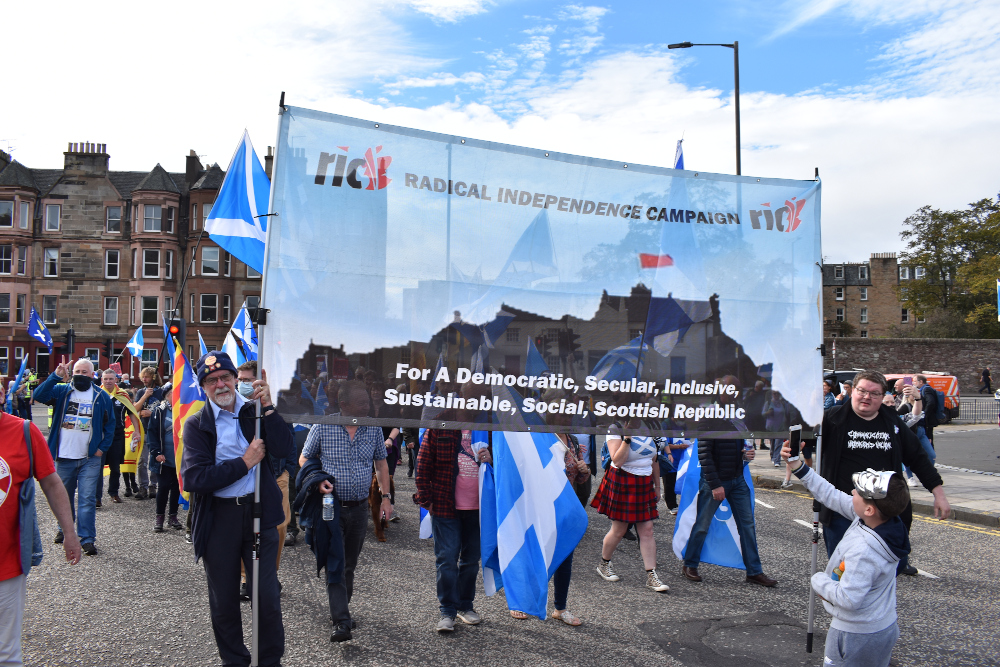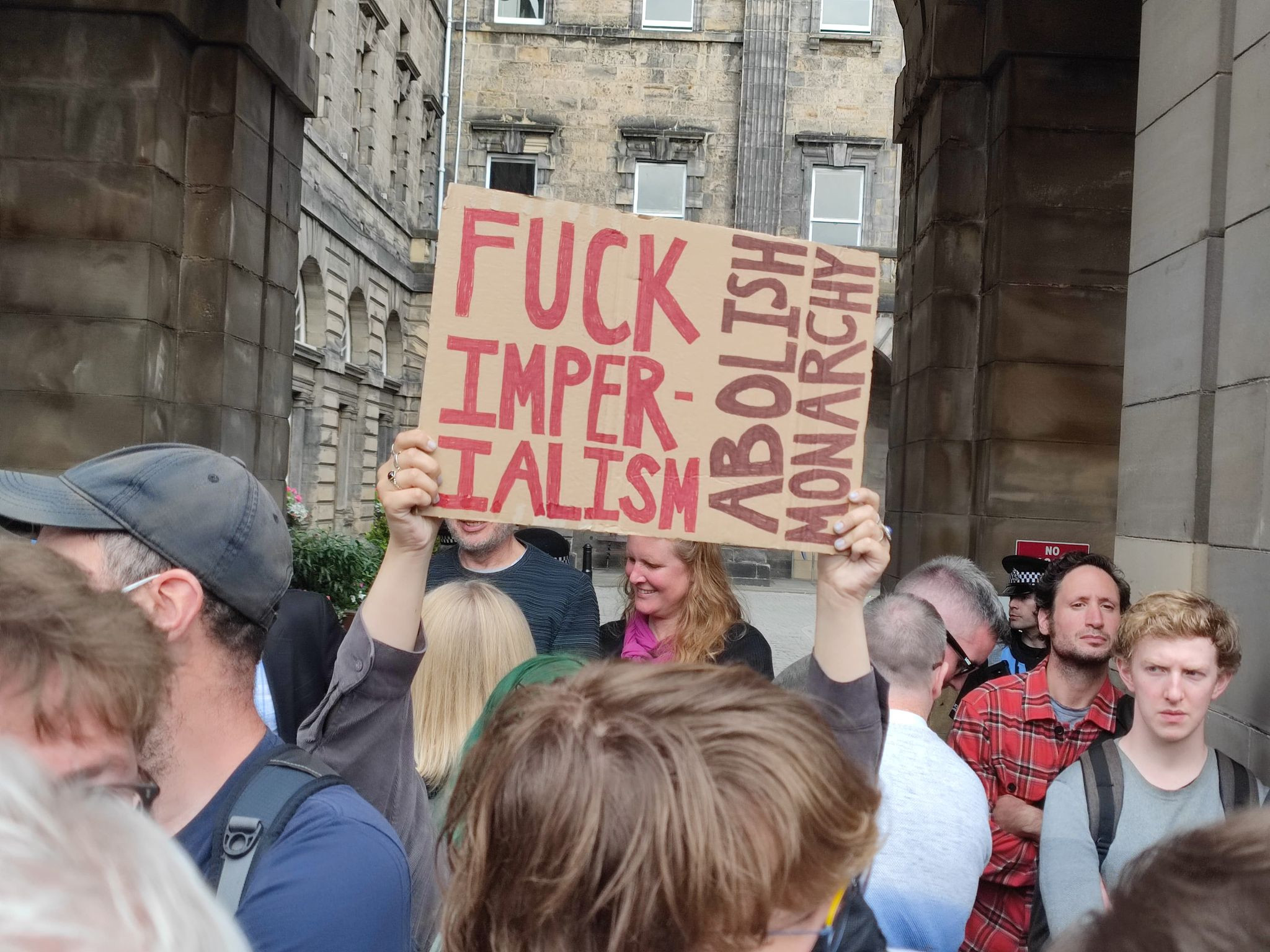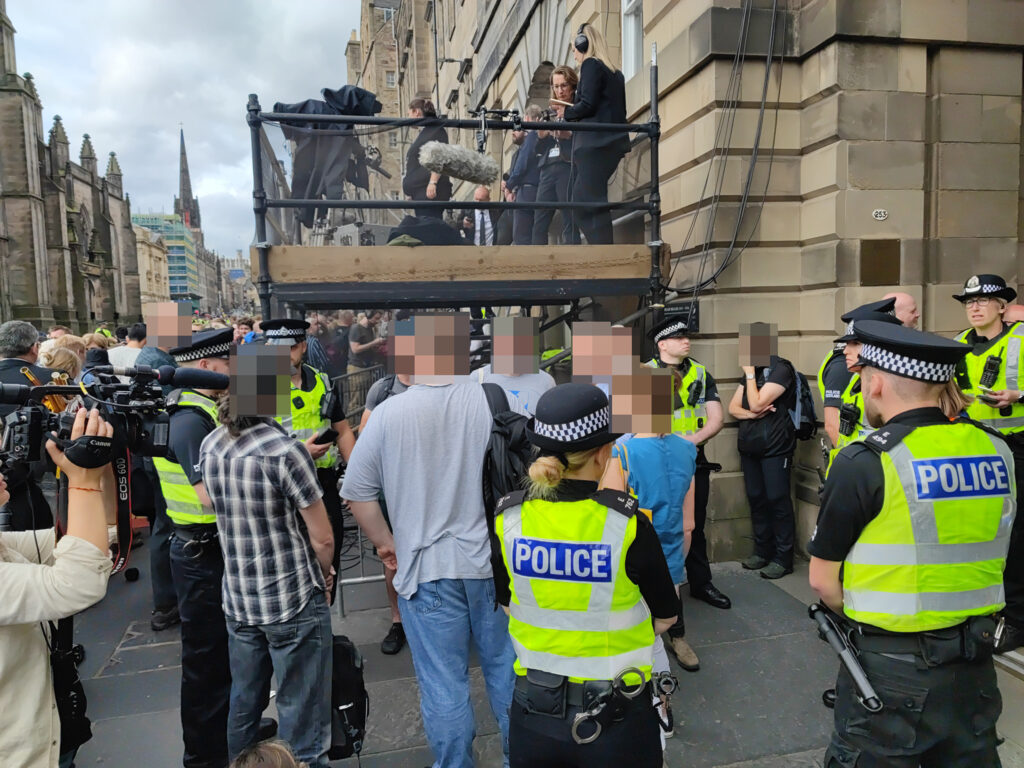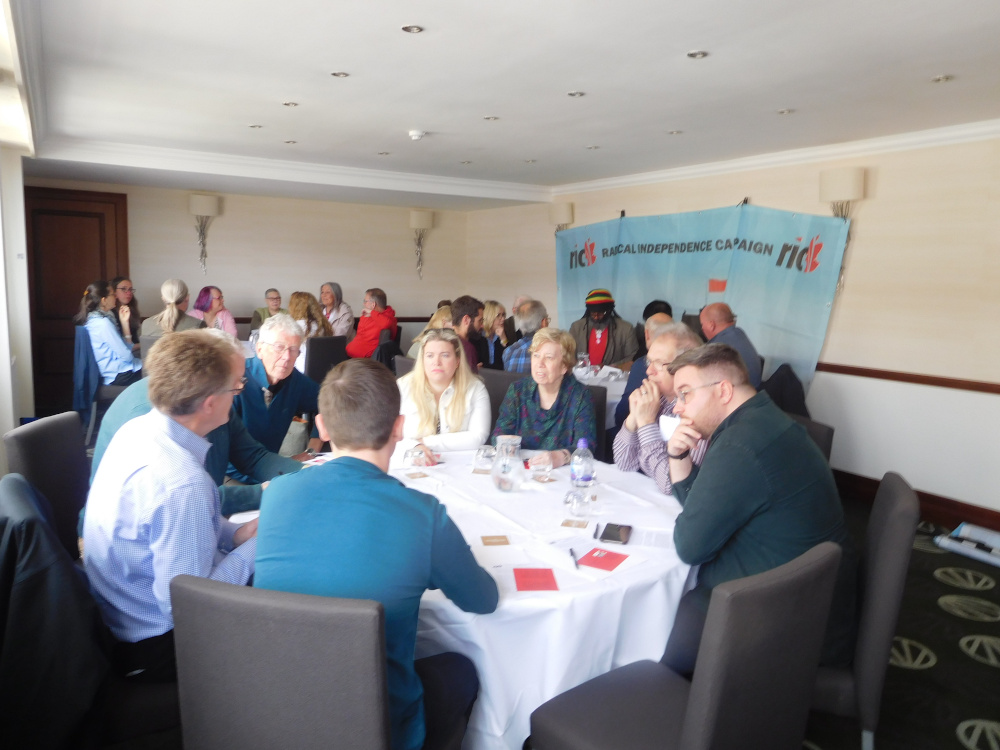On September 18th, November 2014, something truly remarkable in politics happened. By the time of the Scottish independence referendum, held on that day, 97% of Scotland’s potential electorate had registered to vote and 85% took part. This level of democracy is something unprecedented anywhere in the UK’s history. This was a Democratic Revolution.
If ‘IndyRef1’ had been left in the hands of the SNP leaders, the final 45% ‘Yes’ vote would have been considerably smaller. However, many organisations were created, during the two-year period of heady democratic political discussion and debate. In the process, a Rainbow Alliance of women, people from LBGT+, BME and migrant backgrounds, local community activists and artists was developed. The Radical Independence Campaign (RIC), Women for Independence, Africans for an Independent Scotland, English People for Independence, Scots Asians for Independence and the National Collective (Imagine a Better Scotland), were just some of these.
Meetings were held across Scotland in community and social centres, town and village halls. These brought back many into active politics after a long absence and for others this was the very first time they participated. Vibrant online campaigning undermined ‘Project Fear’s misinformation. A new pro-independence media was created e,g. The National and bella caledonia (self determination, autonomy, independence). The National Collective organised well attended ‘Yestival’ events throughout Scotland with many artists performing. In a demonstration of ‘internationalism from below’ solidarity rallies and meetings were held in England, Wales and Ireland.
IndyRef1 brought about the mainstreaming of Scottish independence as a political issue. We still live with its consequences today. Conservatives and reactionaries want to overthrow its legacy. Unionists have moved ever further Right. ‘Better Together’ gave way to ‘Bitter Together.’. And now the UK state’s Supreme Court has ruled that there is no constitutional road to Scottish independence. The Union will be maintained by any means necessary under the UK’s s anti-democratic Crown Powers. Many liberals have become paralysed as their ‘Devolution-all-round’ UK has given way to a toxic ‘Brexit Britain’. None of the contending SNP leaders or Alba have a viable strategy to bring about independence in the face of this.
On May 6th, the UK state-orchestrated coronation of Charles takes place in London. Charles represents the pinnacle of the UK’s political order, based on the sovereignty of the Crown-in-Westminster. Our Republic is organising a protest on Edinburgh’s Calton Hill, a place with a long tradition of democratic dissent. The 2023 Declaration of Calton Hill, initiated by RIC, has been drawn up to win support for the assertion of the republican, democratic sovereignty of the Scottish people. Its initial signatories are drawn from the worlds of Scottish politics, grassroots campaigning and from Scotland’s vibrant cultural scene. Your signature can be given online at www.caltonhill.scot.
The aim is to bring together once more that Rainbow Alliance which achieved so much in 2014. We have no constitutional means to achieve Scottish independence. Our protest on May 6th anticipates the withdrawal of participation in the UK state’s directly imposed institutions and extra-constitutional, non-violent, direct action until we complete Scotland’s Democratic Revolution.



